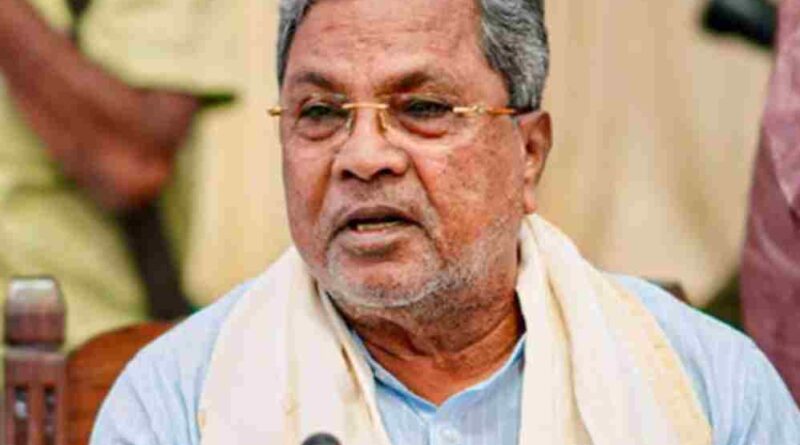Tensions Simmer in Karnataka Congress as Leadership Rift Resurfaces Between Siddaramaiah and DK Shivakumar
Bengaluru, July 2, 2025 — Just over a year after the Congress swept back into power in Karnataka, political undercurrents are beginning to ripple through the party’s state leadership, reigniting a familiar power struggle between Chief Minister Siddaramaiah and his deputy, DK Shivakumar.
While the two leaders have largely maintained a veneer of unity in public, sources within the party suggest that behind the scenes, the long-standing rivalry between the seasoned veteran and the Karnataka Congress president is far from resolved.
A Delicate Power Balance
When the Congress returned to power in 2023 with a resounding mandate, the party opted for a delicate balance of power: Siddaramaiah, with his administrative experience and mass appeal, was appointed Chief Minister. DK Shivakumar, the party’s strongman from the Vokkaliga belt and an instrumental force in organizing the victory, was given the post of Deputy Chief Minister and retained his role as state party president.
This power-sharing formula was seen as a compromise brokered by the central leadership to prevent internal rifts. But that compromise, insiders say, came with an informal promise — a rotational chief ministership after two and a half years.
Now, as the halfway mark inches closer, murmurs are growing louder in Shivakumar’s camp. His supporters are increasingly restless, pointing out that he kept his part of the deal by working tirelessly during the elections and stabilizing the government post-victory. They believe the time is approaching to “honor the promise” made to him.
Siddaramaiah’s Silent Strategy
Siddaramaiah, a seasoned politician known for his calm demeanor and deep grassroots connect, has so far avoided any direct comment on the leadership transition. He remains focused on governance, frequently highlighting the success of key schemes like Gruha Lakshmi, Shakti, and Anna Bhagya.
Yet, his silence is being interpreted by some as strategic. “He knows the importance of timing,” said a senior Congress leader close to Siddaramaiah. “He believes performance will speak louder than any backroom deals.”
And performance is exactly what Siddaramaiah is banking on. With the Lok Sabha elections now behind, and Congress faring decently in the state, he is seen as the steady hand at the helm. Some in the party believe changing leadership midstream could upset this momentum.
Shivakumar’s Growing Patience
DK Shivakumar, on the other hand, has always been more direct and assertive. Known for his organizational strength and control over the party machinery, he has worked hard to consolidate his image as the natural successor. His public statements have grown increasingly loaded with undertones of expectation.
In recent days, he has reiterated the importance of “keeping promises,” a phrase many interpret as a subtle reminder to the Congress high command. “We are loyal soldiers of the party,” he said at a recent press interaction, “but loyalty should never be mistaken for weakness.”
Privately, his loyalists argue that it’s time for a change — that the Congress cannot afford to alienate a leader with Shivakumar’s charisma, financial acumen, and grassroots reach, especially as the party eyes the 2028 state elections.
The High Command’s Balancing Act
The Congress central leadership is treading carefully. With crucial state elections in Maharashtra and Haryana on the horizon, Delhi is wary of allowing a full-blown crisis in Karnataka to explode. The current arrangement — though fraught — offers stability.
But the question remains: for how long?
Top Congress officials have reportedly begun informal discussions with both leaders to assess their positions. One camp favors extending Siddaramaiah’s term for continuity, while another argues that honoring the rotation pact would reflect political integrity and strengthen internal democracy.
The Bigger Picture
This isn’t just a battle of egos or personal ambition. It reflects the larger challenge the Congress faces across India: balancing generational leadership, regional aspirations, and the promise of reform with the need for electoral stability.
For Karnataka voters, especially Congress loyalists, this infighting poses a worry. “We voted for them because we believed they could govern, not just fight among themselves,” said Rekha Bhat, a schoolteacher in Mysuru. “If they want to win again, they need to focus on people, not positions.”
As the state inches closer to the crucial mid-term period, all eyes are now on Delhi. Will the Congress leadership step in with clarity, or will Karnataka become the next battleground in the party’s long internal tug-of-war?
Only time — and political calculation — will tell.
Disclaimer
The information and content shared on digitalgithub.com — including articles, blogs, news, guides, and other resources — is intended for general informational and educational purposes only. We do not guarantee the completeness, reliability, or suitability of any information. Always seek the guidance of a qualified professional before making decisions based on the information you read. Use this site at your own risk.

